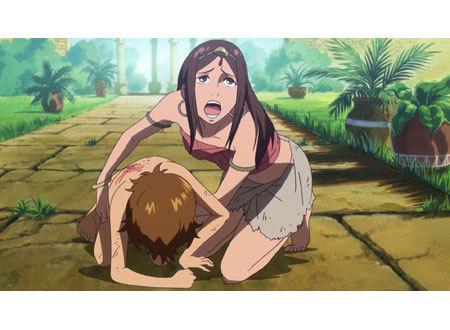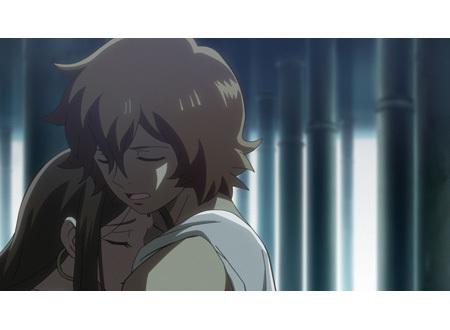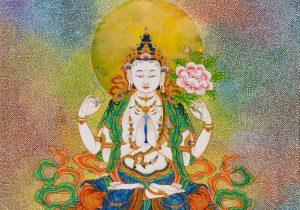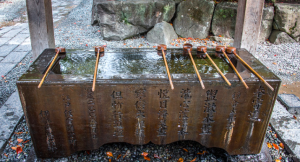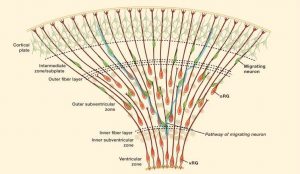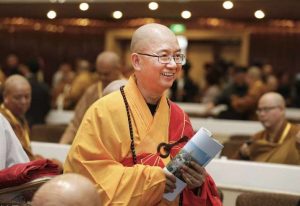Aside from their questionably passionate gazes and prolonged shots of their longing embraces, Chapra and his unnamed mother form a genuinely touching duo. Their mutual devotion forms the second rubric of the movie’s story, and their deaths are brutal and undeniably tragic. Chapra’s story begins when he meets Tata and attempts to kill Budai, a Kosalan general who carelessly destroyed Tata’s village and family. He stops when he realizes he can use Budai to rise up the aristocratic ranks and lift his mother from slavery (although he will find out that this idealistic strategy will fail before the Brahmins). Saving Budai from near death, he is adopted as Budai’s heir, with the Kosalan fully aware that he is not of high caste.
There is little connection between Chapra and Siddhartha’s stories, except for the nonfictional history between the ??kyas and Kosalans and the reality of the caste injustices that plague both protagonists. Indeed, the two heroes meet only once, and that is on the battlefield when they are only fifteen years old. Chapra is undoubtedly a better and keener soldier than Siddhartha, but the moment he looks into the ??kya prince’s tranquil eyes on the battlefield, he is shot unconscious by Bandhaka’s poisoned arrow. This may be an allusion to the poisoned arrow metaphor the Buddha would teach many years later (perhaps Tezuka has a point to make about Chapra’s attempts to solve worldly problems through worldly means, which are ultimately futile and require a spiritual solution). While not killing him, the poison will lead to many twists and turns that end with Chapra’s unfortunate endat the end of a spear. His mother quite literally suffers the same fate, impaled on the same weapon with her son as they embrace each other.
What is genuinely admirable about Chapra is that for everything that seems to imperil his integrity (throughout the first half of the movie he seemed to risk becoming the oppressor), the moment his mother appears it is clear that he never forgot the whole point of lying his way to glory. He is discovered and denounced as low caste scum by Kosala, but remains more than happy to suffer any fate along as long as he can be with his mother.
Also, while it is easy to see general Budai as the typically oppressive warrior with nothing but contempt for the lower classes, even he recognizes the destructiveness of the caste system he supports, since he is genuinely grateful and caring to Chapra. He is also very proud of Chapra’s rapid rise in military prowess, and is not so much angry with Chapra for blowing his cover once their illegitimate father-son bond is discovered. Indeed, he is more disappointed than furious, proving that no one in the caste system – even a general – is free from its oppression.
I might be over-reading things, but there are slightly incestuous undertones between Chapra and his mother. Perhaps it is because she does not actually age in any significant way, and the audience ends up with a strapping young man clinging onto his perpetually beautiful mother with an even greater ardour than Siddhartha shows Migaila.
Click here to go to Migaila’s profile.
Click here to go to Bandhaka’s profile.
Click here to go to Tata’s profile.
Click here to go to Naradatta’s profile.
Click here to go to the main review.



